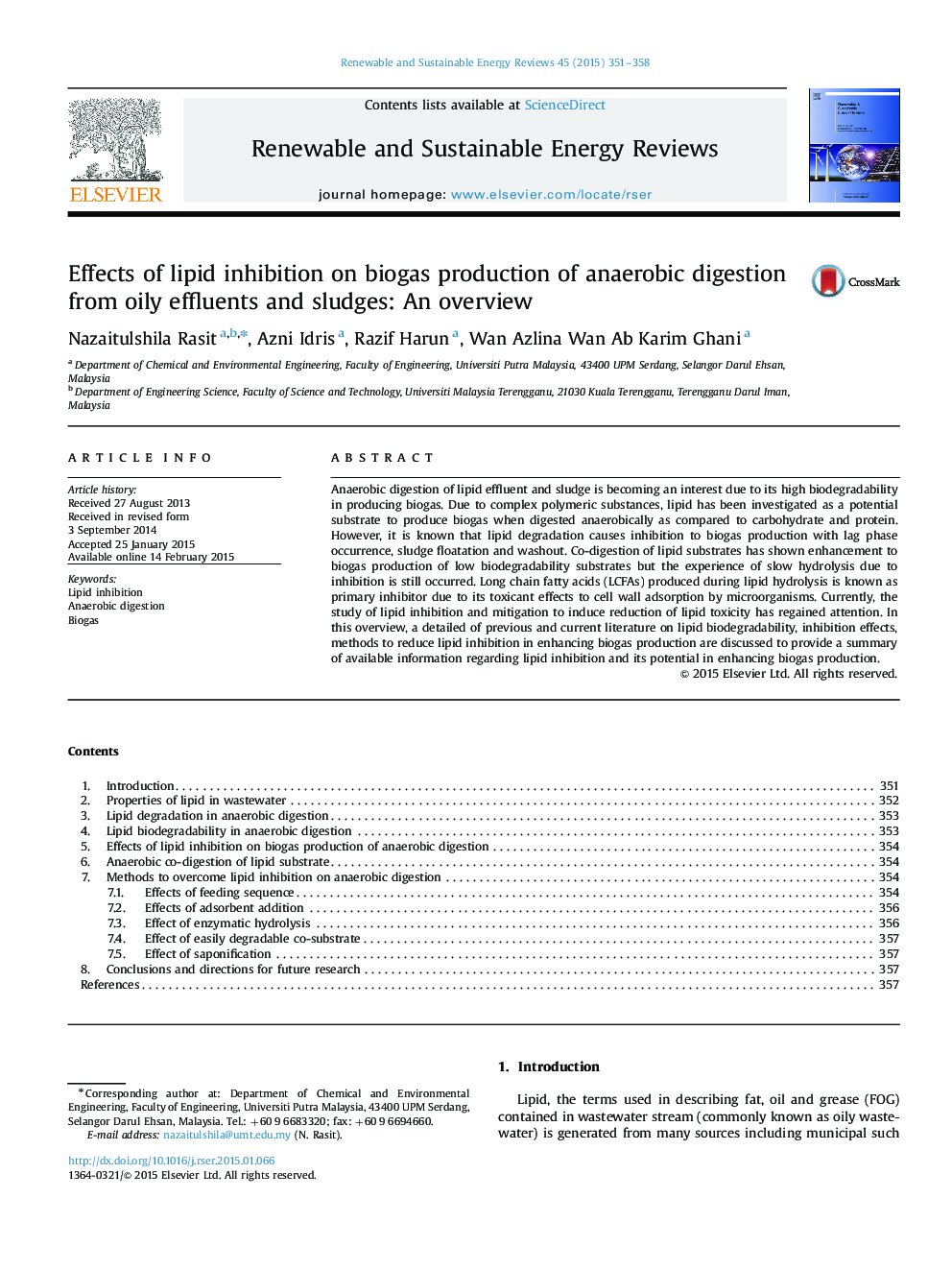| Article ID | Journal | Published Year | Pages | File Type |
|---|---|---|---|---|
| 1750054 | Renewable and Sustainable Energy Reviews | 2015 | 8 Pages |
Anaerobic digestion of lipid effluent and sludge is becoming an interest due to its high biodegradability in producing biogas. Due to complex polymeric substances, lipid has been investigated as a potential substrate to produce biogas when digested anaerobically as compared to carbohydrate and protein. However, it is known that lipid degradation causes inhibition to biogas production with lag phase occurrence, sludge floatation and washout. Co-digestion of lipid substrates has shown enhancement to biogas production of low biodegradability substrates but the experience of slow hydrolysis due to inhibition is still occurred. Long chain fatty acids (LCFAs) produced during lipid hydrolysis is known as primary inhibitor due to its toxicant effects to cell wall adsorption by microorganisms. Currently, the study of lipid inhibition and mitigation to induce reduction of lipid toxicity has regained attention. In this overview, a detailed of previous and current literature on lipid biodegradability, inhibition effects, methods to reduce lipid inhibition in enhancing biogas production are discussed to provide a summary of available information regarding lipid inhibition and its potential in enhancing biogas production.
